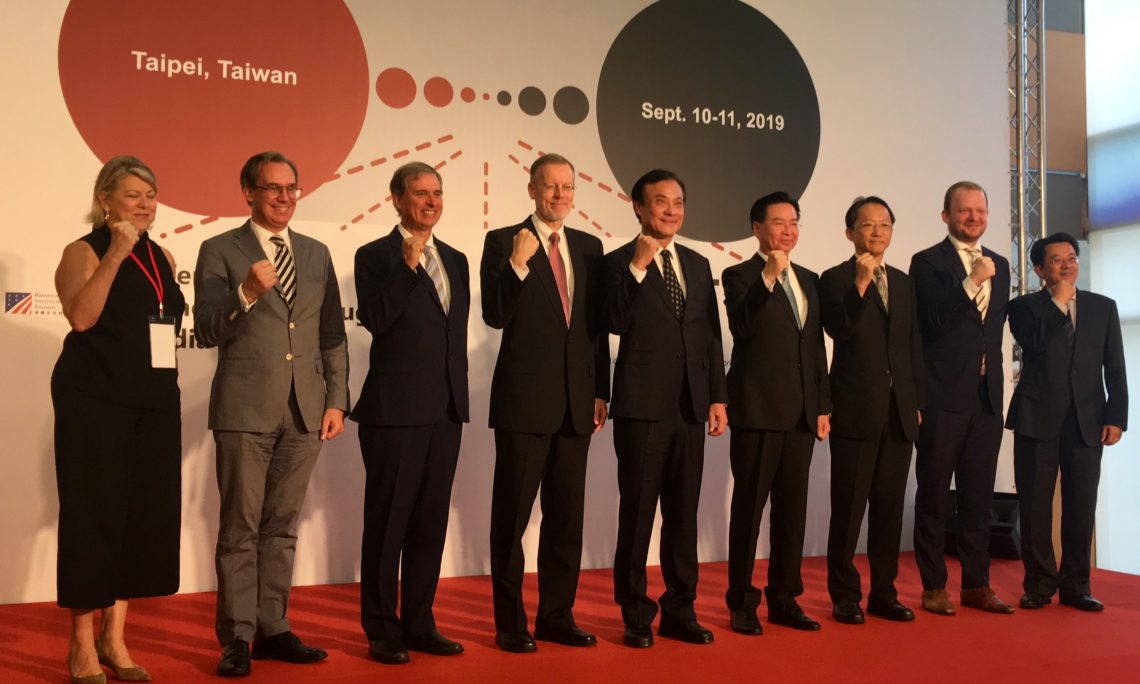OT-1964
September 10, 2019
Opening Remarks by AIT Director W. Brent Christensen
at the GCTF Workshop on Defending Democracy through Promoting Media Literacy
Tuesday, September 10, 2019
Speaker Su, Foreign Minister Wu, Deputy Assistant Secretary Busby, Representative Jevrell, Deputy Representative Nishiumi, and Vice President Bryan, distinguished guests and friends, good morning. On behalf of the American Institute in Taiwan, it is my honor and distinct pleasure to welcome everyone to the second round of the International Workshop on Defending Democracy through Promoting Media Literacy held under the auspices of the U.S.-Taiwan Global Cooperation Training Framework.
The topic that brings us here together for a second year in a row – how to combat disinformation – is one of the most vexing and complex challenges facing democratic societies around the world today. The United States’ National Security Strategy describes a geopolitical competition between free and repressive visions of governance that is playing out in this region and beyond. Nowhere is this truer than on the information battlefield. The United States is grappling with the spread of disinformation, particularly as foreign actors seek to use social media to influence our elections, divide the American public, and undermine confidence in our democratic institutions.
Taiwan is also on the frontline of this battle and faces the same challenge, albeit from a more determined opponent. And as we all quickly discovered during last year’s workshop, both the United States and countries around the world have much to learn from Taiwan about how to marshal our academic, policy, and technical resources to confront this kind of external pressure.
Responding to the challenge of disinformation is something no one society or government can do alone. We are all here to benefit from Taiwan’s help, but we also need your help, no matter where you call home. We need to hear from all of you about what policies and programs have succeeded in your countries that might work for us. We need to hear what kinds of threats you have encountered that we may need to defend against. We also need to hear about your missteps and share our own. I am so glad to see that we have participants here from over a dozen countries, who will no doubt make valuable contributions to a fruitful discussion.
It is a privilege to be joined again by Deputy Assistant Secretary Scott Busby, whose return to Taiwan is a reflection of ongoing U.S. commitment to working with you all to defend our democratic institutions. We are very happy to have our Japanese friends as cosponsors this year, and for the first time, our Swedish friends are joining us as cosponsors as well. In addition, we are delighted to welcome some of the world’s top experts from the private sector, including tech leaders such as Microsoft, and from the world’s top thinktanks, such as Mr. Kalensky, who will draw on his ample experience in government to advise us on how to best approach this thorny problem.
This year AIT is celebrating 40 years of friendship and cooperation with Taiwan since the signing of the Taiwan Relations Act. As part of our AIT@40 campaign, each month we are celebrating a particular area of the U.S.-Taiwan partnership. September is Education Month, which is fitting, given the critical link between media literacy and education.
Media literacy is built on a foundation of critical thinking. In the free marketplace of ideas, we want our citizens to be discerning consumers. The same critical thinking that makes people adept news consumers also helps them fulfill their civic duties. A well-informed citizenry that can effectively distinguish between credible and false reports is a citizenry that is better prepared to vote intelligently and hold their leaders accountable. For these and other reasons, we can be confident that what we are learning here today and tomorrow will contribute to a better future in many significant ways.
For our guests from elsewhere in the region, welcome to Taiwan, and thank you for traveling great distances to join us here today. If this is your first visit, you will soon discover that Taiwan is home to not only some of the friendliest people in the world, but also some of the most talented and creative. We encourage you to make the most of your time here, and we hope that this will be only the first of many visits to come.
As you take the lessons learned from this workshop back to your home countries, please know that the U.S. embassies and consulates where you live stand ready to support your efforts to build media literacy within your communities and to ensure that democracy and good governance continues to grow and thrive in the 21st century in the Indo-Pacific region.
Thank you again for coming.
















![Video Thumbnail [Recovered]-01](../wp-content/uploads/sites/269/Video-Thumbnail-Recovered-01-1-750x450.jpg)





